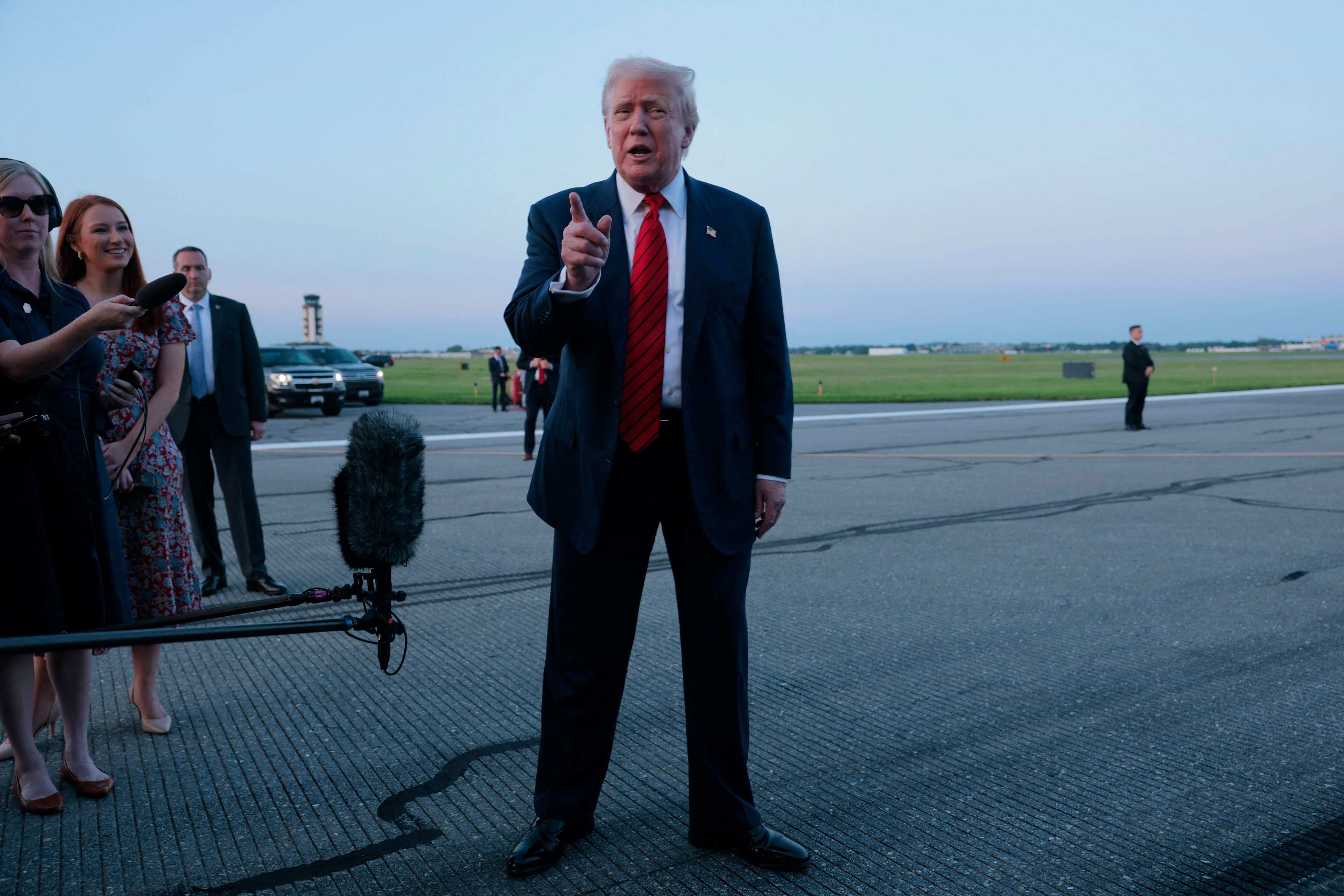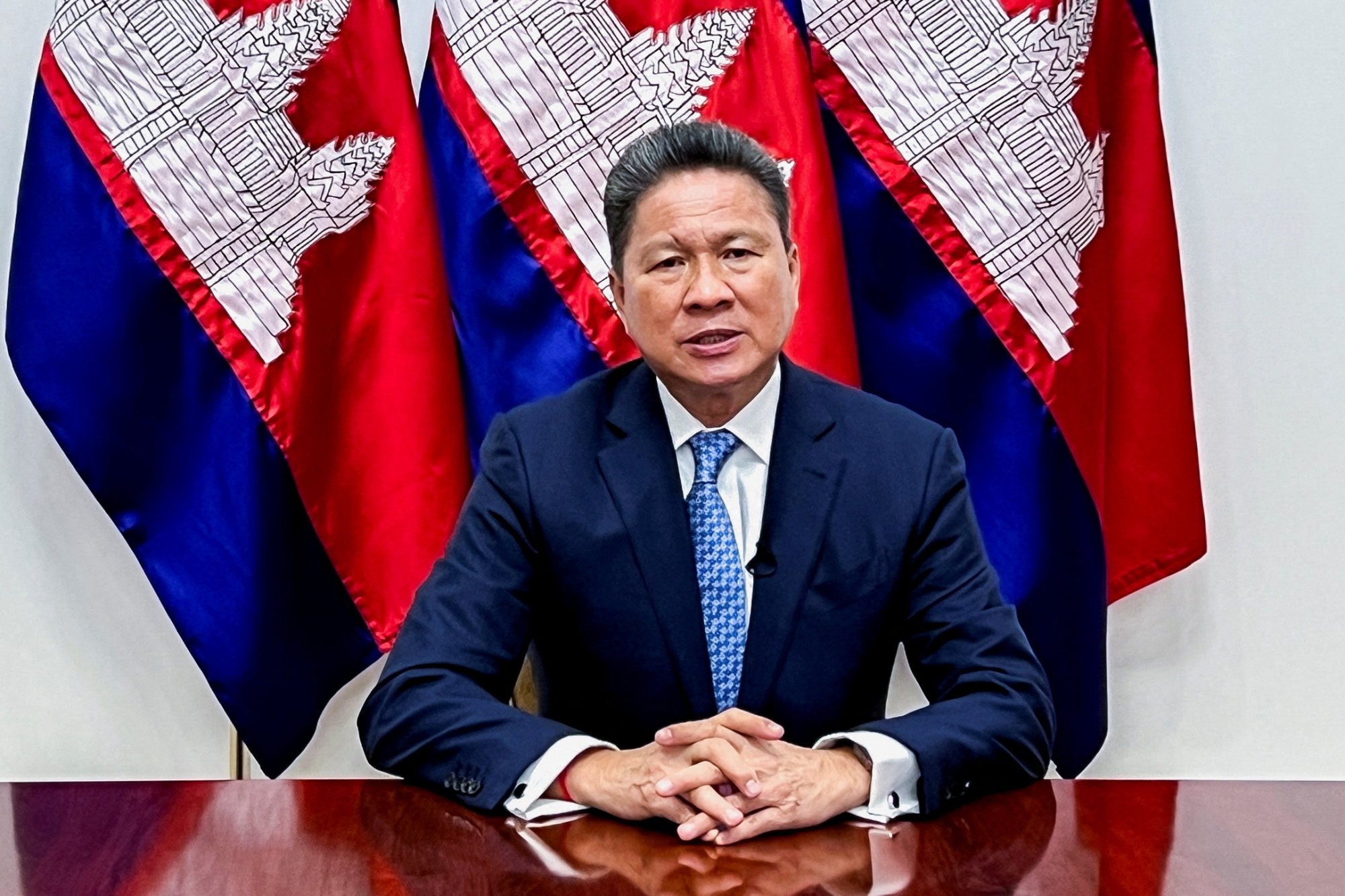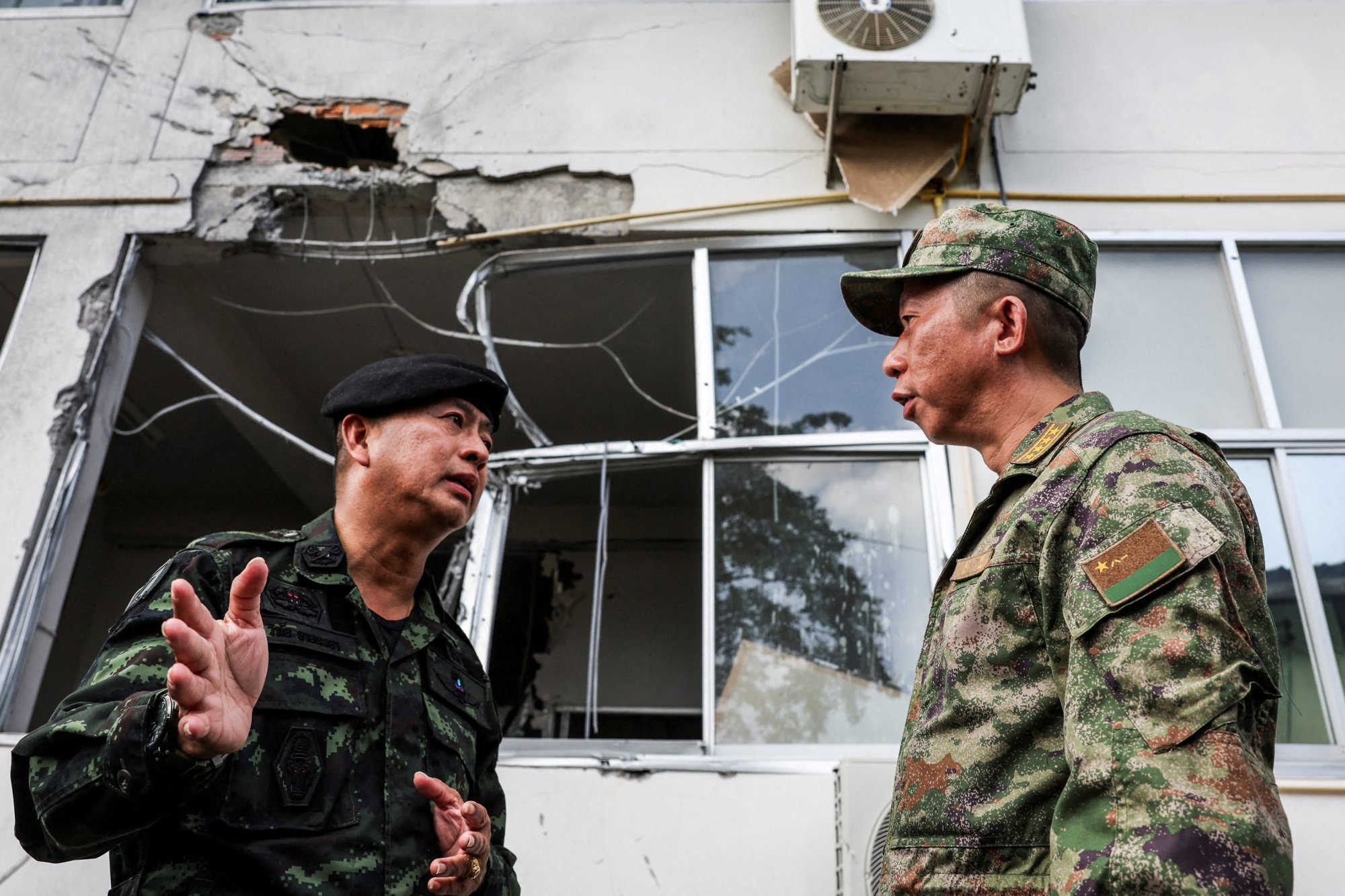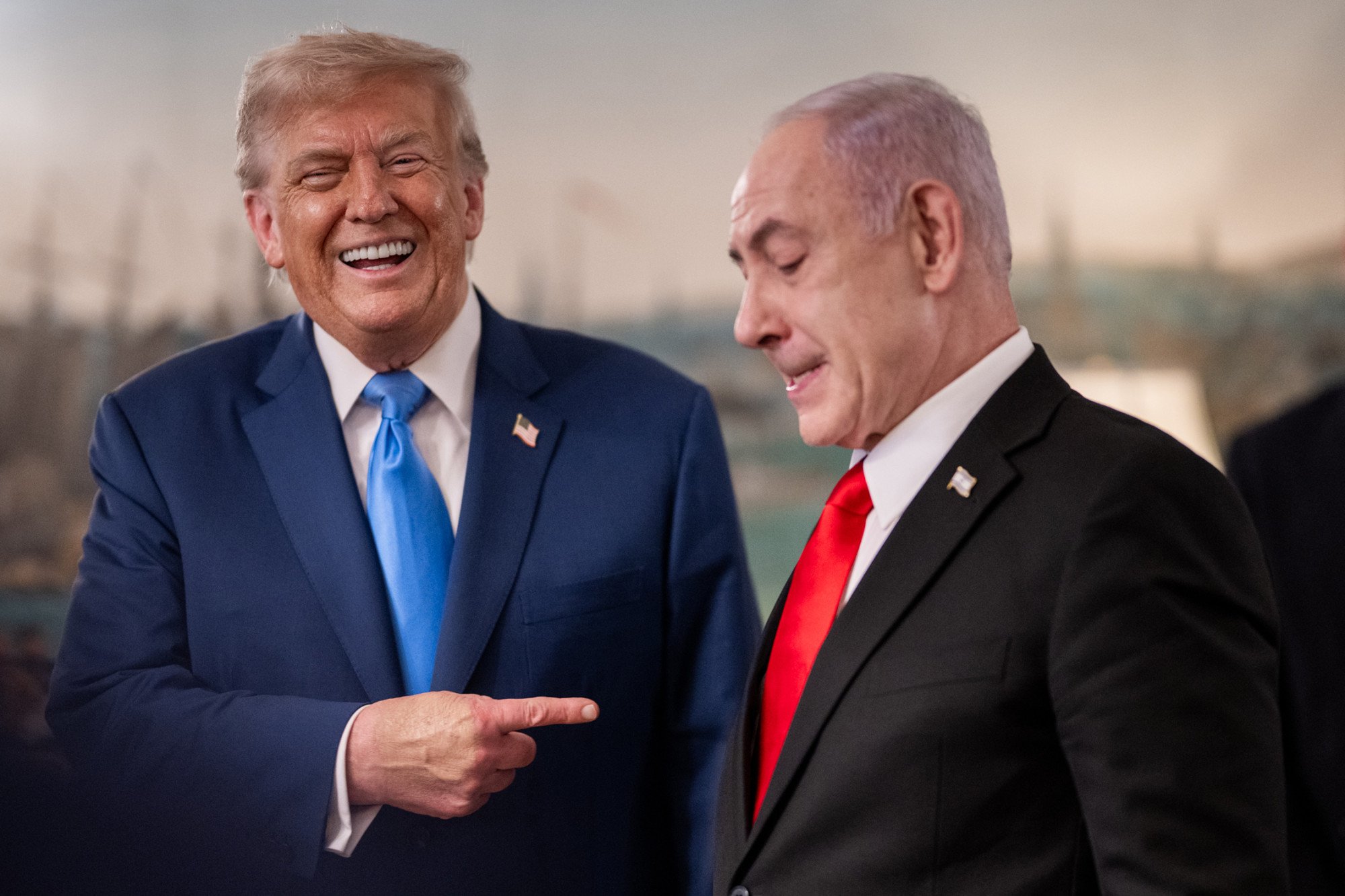‘Currying favour’: why Cambodia nominated Donald Trump for a Nobel Peace Prize
Cambodia ‘needed a hero’ to intervene in its border dispute with Thailand, analysts say – and Trump’s ego made him the perfect candidate

When Cambodian Deputy Prime Minister Sun Chanthol stood before reporters in Phnom Penh last Friday, he offered thanks not to China or Asean, but to Donald Trump, whose intervention in the kingdom’s border dispute with Thailand, he said, merited nothing less than a Nobel Peace Prize.
Far from being a simple act of gratitude, observers say the move reflects Cambodia’s “adept ability” to navigate the shifting fault lines of great power rivalry in Southeast Asia – and its determination to avoid overreliance on Beijing.
Speaking in the capital on Friday, Chanthol publicly thanked the US president for his personal involvement in halting the recent deadly border clashes with Thailand and insisted that Trump deserved the Nobel.
The award, widely regarded as the world’s most prestigious peace accolade, is typically bestowed upon individuals or organisations judged to have “advanced fellowship between nations”.

But Sophal Ear, associate professor at Arizona State University’s Thunderbird School of Global Management, told This Week in Asia that Cambodia’s nomination was less a reflection of Trump’s peacemaking credentials than of Phnom Penh’s “strategic positioning”.
“The gesture is largely symbolic, a low-cost, high-profile way to curry favour with a US president who remains unpredictable and transactional,” the Cambodian-American political scientist said.
“Cambodia’s leadership understands Trump’s deep desire for recognition and international prestige and they are tapping into that vanity to potentially extract diplomatic goodwill or leverage.”
Ear said that the move also played well domestically, as it showed Cambodia’s ability to “hold its own on the international stage and build bridges with great powers”.

While China and the Association of Southeast Asian Nations also played roles in brokering the ceasefire, Ear said Phnom Penh’s silence on their contributions was “telling”,
Despite China’s status as Cambodia’s principal economic, military and diplomatic benefactor, he described Beijing’s role in the crisis as cautious and behind the scenes.
By contrast, Trump’s involvement – spanning reported phone calls and tariff threats – was “brash, immediate and very public”, Ear said, adding that in Cambodian politics “visibility matters”.
“Trump offered a convenient and attention-grabbing foil to elevate Cambodia’s narrative of diplomatic seriousness, even if that means sidelining its usual allies.”
Meanwhile, Phnom Penh would have felt comfortable playing down Asean’s contribution because of the bloc’s “chronic indecisiveness and slow response”, he added.
‘More about deal-making’
Interpreting Cambodia’s nomination as an endorsement of Trump’s leadership or peacemaking skills would be a mistake, according to Soksamphoas Im, associate director at Michigan State University’s Asian Studies Centre.
Unhandled type: inline-plus-widget {“type”:”inline-plus-widget”}
“Instead, it is a reflection of Phnom Penh’s adept ability to navigate shifting geopolitical currents by rewarding those who deliver tangible benefits,” she told This Week in Asia.
“Trump’s intervention was less about peacebuilding and more about deal-making, but for Cambodia, the outcome mattered more than the method,” Im said. “Cambodia needed a hero and Trump’s ego, timing and trade leverage made him the perfect candidate.”
The nomination served the strategic purpose of “flattering Trump’s well-known obsession with the Nobel Peace Prize”, she said, reinforcing a positive bilateral narrative at minimal cost. It also positioned Cambodia as a responsible international actor, ready to reward peace-makers – when it suits.
Cambodia needed a hero and Trump’s ego, timing and trade leverage made him the perfect candidateSoksamphoas Im, political scientist
According to Im, Cambodia drawing Beijing into the spotlight would have risked undermining Asean’s relevance and could have provoked a “backlash from other regional powers wary of China’s growing footprint”.
Cambodia is not alone in seeking to reward Trump for foreign policy interventions. In June, Pakistan said it would recommend him for the Nobel Peace Prize for his role in defusing tensions with India and last month, Israeli Prime Minister Benjamin Netanyahu announced he had submitted Trump’s name for consideration.
The White House, for its part, has welcomed such moves. Press Secretary Karoline Leavitt declared on July 31 that it was “well past time” for Trump to be recognised, citing “a peace deal a month” since the start of his second presidency, including mediations between India and Pakistan, Cambodia and Thailand, Egypt and Ethiopia, Rwanda and the Democratic Republic of Congo, and Serbia and Kosovo, among others.
“I deserve it, but they will never give it to me,” Trump told reporters in February as he hosted Netanyahu at the White House.

Hunter Marston, an adjunct fellow with the US-based Centre for Strategic and International Studies think tank, described Cambodia’s nomination as a “cost-free way” to score political points with Trump’s White House, especially as Southeast Asian economies have been hit with a new wave of US tariffs.
“Phnom Penh is just playing the game of realpolitik and recognising Trump’s transactional nature; this is one way to earn goodwill,” Marston said.
While the kingdom had other ways of keeping Beijing onside, he said overdependence on China was a serious concern for Cambodia’s leaders.
“Maintaining an open and ambiguous foreign policy by cultivating warm ties with Washington is a key pillar of this strategy,” he said.
I don’t think Phnom Penh is as concerned with heaping praise on Asean publiclyHunter Marston, foreign policy analyst
Cambodian officials are in regular contact with their Asean counterparts and have ample opportunities to communicate their “real intentions” through discreet bilateral channels, Marston added.
“So I don’t think Phnom Penh is as concerned with heaping praise on Asean publicly compared with sending an unmistakable signal of goodwill towards the US.”
Precisely what Trump personally contributed to the ceasefire was unclear, Marston said, although US diplomats no doubt played a part. “But it is highly unlikely that this has occupied much of Trump’s bandwidth in the Oval Office,” he added.
Relations between the Southeast Asian neighbours took a nosedive in May, after a Cambodian soldier was killed in a border skirmish and ties further soured after Thai soldiers were later injured by landmines in disputed territory. Both sides downgraded diplomatic relations as violence flared, each blaming the other for the escalation.
A ceasefire was announced on July 28 after talks hosted by Malaysian Prime Minister Anwar Ibrahim, the current Asean chair, co-organised by the US and attended by Chinese representatives. Trump had earlier warned both Phnom Penh and Bangkok that they could expect no trade deals from Washington without a truce.
Last week, China’s vice-minister for foreign affairs Sun Weidong hosted further talks in Shanghai, securing a renewed commitment from both sides to uphold the ceasefire.
For Ear, Cambodia’s nomination of Trump epitomised the country’s prioritising of tactical, opportunistic diplomacy over ideological alignment.
“Today it is Trump; tomorrow it could be a Chinese general or a Russian energy minister,” he said. The government played all sides, offering “symbolic gestures here and calculated silence there” to maximise flexibility.
“Whether the Nobel Committee even entertains this nomination is irrelevant. The headlines have already done their job,” he added.
Additional reporting by Reuters